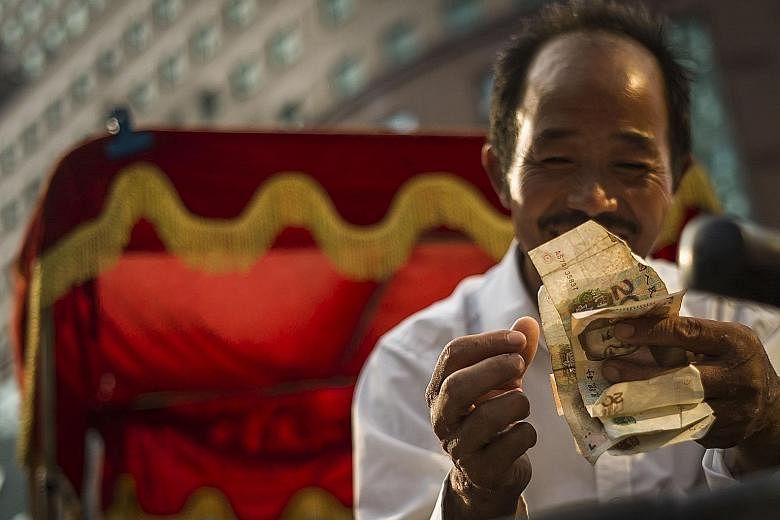SHANGHAI • China is tightening capital controls following a devaluation of its currency, media reports said, as worries about financial outflows grow.
The State Administration of Foreign Exchange (Safe) had ordered financial institutions to increase checks and boost controls over foreign exchange transactions - especially ones involving over-invoicing of exports, which is used to hide capital outflows - the Financial Times on Wednesday quoted unnamed sources and an internal memo as saying.
In a similar report, Bloomberg News quoted Mr Tommy Ong of DBS Bank Hong Kong as saying: "The main objective is to reduce volatility, curb capital outflows and limit depreciation pressure on the yuan."
Last month, China moved the yuan almost 5 per cent lower in a week, saying that it was part of broader economic reforms aimed at a shift towards a more flexible exchange rate.
The suddenness and scale of the devaluation in the normally stable unit sparked fears that the world's second-largest economy was faring worse than had been revealed.
China's foreign exchange reserves fell by a record US$93.9 billion (S$133 billion) last month, ending the month at US$3.56 trillion, as Beijing sold dollars to support the yuan, following jitters over the surprise devaluation.
The central bank, the People's Bank of China (PBOC), said on Tuesday that it would require banks to give a 20 per cent deposit on forward sales of foreign exchange, in a move aimed at speculators. A forward sale is a commitment to sell at a predetermined price and date.
However, in a statement, the PBOC denied that the move amounted to a capital control as it did not restrict transaction volumes and did not require approval for individual transactions.
Chinese Premier Li Keqiang yesterday told the World Economic Forum in Dalian that China would keep the yuan stable, and he vowed to push forward with efforts to make it freely convertible. He also promised to allow foreign central banks to trade directly trade in China's currency market.
"China will not want to see any currency wars," he told business executives at the same forum the day before.
The yuan traded 0.02 per cent lower against the dollar, at 6.3772, at 4.29pm Singapore time yesterday. It was 0.09 per cent higher at 4.5049 per Singapore dollar at 6.11pm Singapore time.
AGENCE FRANCE-PRESSE

